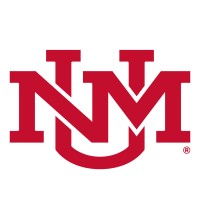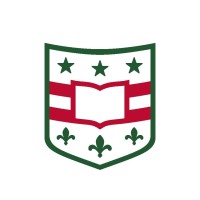Company Details
university-of-missouri
14,645
299,415
6113
missouri.edu
0
UNI_3190483
In-progress


University of Missouri-Columbia Company CyberSecurity Posture
missouri.eduWe are Mizzou! Our distinct mission, as Missouri's only state-supported member of the Association of American Universities, is to provide all Missourians the benefits of a world-class research university. We are stewards and builders of a priceless state resource, a unique physical infrastructure and scholarly environment in which our tightly interlocked missions of teaching, research, service and economic development work together on behalf of all citizens. Students work side by side with some of the world's best faculty to advance the arts and humanities, the sciences, and the professions. Scholarship and teaching are daily driven by a sense of public service — the obligation to produce and disseminate knowledge that will improve the quality of life in the state, the nation and the world.
Company Details
university-of-missouri
14,645
299,415
6113
missouri.edu
0
UNI_3190483
In-progress
Between 800 and 849

 UM Global Score (TPRM)
UM Global Score (TPRM)XXXX

Description: The University of Missouri reported a data breach on October 24, 2023, involving a Zero-Day vulnerability in the MOVEit® Transfer application, which occurred on May 31, 2023. The breach affected approximately 118,808 individuals, with specific personal information, including Social Security Numbers, being compromised. The breach was discovered on September 9, 2023, and identity theft protection services were offered for 24 months through Kroll.


No incidents recorded for University of Missouri-Columbia in 2026.
No incidents recorded for University of Missouri-Columbia in 2026.
No incidents recorded for University of Missouri-Columbia in 2026.
UM cyber incidents detection timeline including parent company and subsidiaries

We are Mizzou! Our distinct mission, as Missouri's only state-supported member of the Association of American Universities, is to provide all Missourians the benefits of a world-class research university. We are stewards and builders of a priceless state resource, a unique physical infrastructure and scholarly environment in which our tightly interlocked missions of teaching, research, service and economic development work together on behalf of all citizens. Students work side by side with some of the world's best faculty to advance the arts and humanities, the sciences, and the professions. Scholarship and teaching are daily driven by a sense of public service — the obligation to produce and disseminate knowledge that will improve the quality of life in the state, the nation and the world.


Vanderbilt University is a top-ranked teaching and research university in Nashville, Tennessee. Powered by collaboration. Follow Vanderbilt on Facebook, Twitter, TikTok and Instagram @VanderbiltU. See more Vanderbilt social media at https://social.vanderbilt.edu/ Located in Nashville, Tenn., and o

Founded in 1963 to provide talent for Central Florida and the growing U.S. space program, UCF has been making an impact on the state, the nation — and outer space — ever since. With 13 colleges and more than 230 degree programs, your passion lies at one of our campus locations designed to help you

Apollo Education Group, Inc. was founded in 1973 in response to a gradual shift in higher education demographics from a student population dominated by youth to one in which approximately half the students are adults and over 80 percent of whom work full-time. Apollo's founder, John Sperling, believ

Located in historic Providence, Rhode Island and founded in 1764, Brown University is the seventh-oldest college in the United States. Brown is an independent, coeducational Ivy League institution comprising undergraduate and graduate programs, plus the Alpert Medical School, School of Public Health

Washington State University is a nationally recognized land-grant research university, founded in Pullman in 1890. WSU’s statewide system includes campuses in Pullman, Spokane, Everett, Tri-Cities and Vancouver, with extension and research offices in every county of the state, and a nationally ranke

Nuestra Misión es formar profesionales de excelencia a través de un modelo educativo basado en una visión integradora de los procesos formativos, que promueve el saber y el saber aplicado, con un enfoque preferentemente profesionalizante. Nuestros programas son pertinentes a las necesidades de co

Founded in 1889, The University of New Mexico now occupies 600 acres along old Route 66 in the heart of Albuquerque, a city of more than 700,000 people. From the magnificent mesas to the west, past the banks of the historic Rio Grande to the Sandia Mountains to the east, Albuquerque is a blend of cu

In achievement and prestige, the University of Wisconsin–Madison has long been recognized as one of America's great universities. A public, land-grant institution, UW–Madison offers a complete spectrum of liberal arts studies, professional programs and student activities. Spanning 936 acres along th

Washington University in St. Louis, a medium-sized, independent university, is dedicated to challenging its faculty and students alike to seek new knowledge and greater understanding of an ever-changing, multicultural world. The university has played an integral role in the history and continuing gr
.png)
Nebraska Innovation Studio has named its 2026 Innovation Fellows: Bill Berzonsky, Jon Turkus, Dr. James Willcockson and Chris Wong.
Cybersecurity awareness must reach employees and everyday people alike. Through NTT DOCOMO gacco, SAYA delivers Japanese-native training at...
What career opportunities are on the cutting edge of computer science and cybersecurity? Learn from Dr. Reshmi Mitra, whose research runs...
Meredith Graham is an experienced human resources executive and attorney who is leading the HR organization at Ensono. She directs a team responsible for...
Undergraduates from across the country spent this summer taking part in the Research on Prescriptive Analytics for AI-enabled Operations...
The University of Missouri is designing and constructing an Energy Innovation Center, a cutting-edge facility where world-class researchers...
Danielle Jablanski, a widely respected figure in the operational technology (OT) cybersecurity space, has joined engineering and design firm...
The university's designation as a National Center of Academic Excellence in Cyber Research has been extended through academic year 2030.
The Missouri General Assembly has passed legislation that ends the University of Missouri's exclusive right to grant research doctoral degrees in the state.

Explore insights on cybersecurity incidents, risk posture, and Rankiteo's assessments.
The official website of University of Missouri-Columbia is http://www.missouri.edu.
According to Rankiteo, University of Missouri-Columbia’s AI-generated cybersecurity score is 800, reflecting their Good security posture.
According to Rankiteo, University of Missouri-Columbia currently holds 0 security badges, indicating that no recognized compliance certifications are currently verified for the organization.
According to Rankiteo, University of Missouri-Columbia has not been affected by any supply chain cyber incidents, and no incident IDs are currently listed for the organization.
According to Rankiteo, University of Missouri-Columbia is not certified under SOC 2 Type 1.
According to Rankiteo, University of Missouri-Columbia does not hold a SOC 2 Type 2 certification.
According to Rankiteo, University of Missouri-Columbia is not listed as GDPR compliant.
According to Rankiteo, University of Missouri-Columbia does not currently maintain PCI DSS compliance.
According to Rankiteo, University of Missouri-Columbia is not compliant with HIPAA regulations.
According to Rankiteo,University of Missouri-Columbia is not certified under ISO 27001, indicating the absence of a formally recognized information security management framework.
University of Missouri-Columbia operates primarily in the Higher Education industry.
University of Missouri-Columbia employs approximately 14,645 people worldwide.
University of Missouri-Columbia presently has no subsidiaries across any sectors.
University of Missouri-Columbia’s official LinkedIn profile has approximately 299,415 followers.
University of Missouri-Columbia is classified under the NAICS code 6113, which corresponds to Colleges, Universities, and Professional Schools.
No, University of Missouri-Columbia does not have a profile on Crunchbase.
Yes, University of Missouri-Columbia maintains an official LinkedIn profile, which is actively utilized for branding and talent engagement, which can be accessed here: https://www.linkedin.com/company/university-of-missouri.
As of January 23, 2026, Rankiteo reports that University of Missouri-Columbia has experienced 1 cybersecurity incidents.
University of Missouri-Columbia has an estimated 15,170 peer or competitor companies worldwide.
Incident Types: The types of cybersecurity incidents that have occurred include Vulnerability.
Detection and Response: The company detects and responds to cybersecurity incidents through an third party assistance with kroll..
Title: University of Missouri Data Breach
Description: The University of Missouri reported a data breach involving a Zero-Day vulnerability in the MOVEit® Transfer application, affecting approximately 118,808 individuals with personal information, including Social Security Numbers, being compromised.
Date Detected: 2023-09-09
Date Publicly Disclosed: 2023-10-24
Type: Data Breach
Attack Vector: Zero-Day Vulnerability
Vulnerability Exploited: MOVEit® Transfer application
Common Attack Types: The most common types of attacks the company has faced is Vulnerability.

Data Compromised: Social security numbers
Identity Theft Risk: High
Commonly Compromised Data Types: The types of data most commonly compromised in incidents are Social Security Numbers and .

Entity Name: University of Missouri
Entity Type: Educational Institution
Industry: Education
Location: Missouri, USA
Customers Affected: 118808

Third Party Assistance: Kroll.
Third-Party Assistance: The company involves third-party assistance in incident response through Kroll, .

Type of Data Compromised: Social security numbers
Number of Records Exposed: 118808
Sensitivity of Data: High
Personally Identifiable Information: Social Security Numbers

Source: University of Missouri
Additional Resources: Stakeholders can find additional resources on cybersecurity best practices at and Source: University of Missouri.
Post-Incident Analysis Process: The company's process for conducting post-incident analysis is described as Kroll, .
Most Recent Incident Detected: The most recent incident detected was on 2023-09-09.
Most Recent Incident Publicly Disclosed: The most recent incident publicly disclosed was on 2023-10-24.
Most Significant Data Compromised: The most significant data compromised in an incident were Social Security Numbers and .
Third-Party Assistance in Most Recent Incident: The third-party assistance involved in the most recent incident was kroll, .
Most Sensitive Data Compromised: The most sensitive data compromised in a breach was Social Security Numbers.
Number of Records Exposed in Most Significant Breach: The number of records exposed in the most significant breach was 926.0.
Most Recent Source: The most recent source of information about an incident is University of Missouri.
.png)
Improper validation of specified type of input in M365 Copilot allows an unauthorized attacker to disclose information over a network.
Improper access control in Azure Front Door (AFD) allows an unauthorized attacker to elevate privileges over a network.
Azure Entra ID Elevation of Privilege Vulnerability
Moonraker is a Python web server providing API access to Klipper 3D printing firmware. In versions 0.9.3 and below, instances configured with the "ldap" component enabled are vulnerable to LDAP search filter injection techniques via the login endpoint. The 401 error response message can be used to determine whether or not a search was successful, allowing for brute force methods to discover LDAP entries on the server such as user IDs and user attributes. This issue has been fixed in version 0.10.0.
Runtipi is a Docker-based, personal homeserver orchestrator that facilitates multiple services on a single server. Versions 3.7.0 and above allow an authenticated user to execute arbitrary system commands on the host server by injecting shell metacharacters into backup filenames. The BackupManager fails to sanitize the filenames of uploaded backups. The system persists user-uploaded files directly to the host filesystem using the raw originalname provided in the request. This allows an attacker to stage a file containing shell metacharacters (e.g., $(id).tar.gz) at a predictable path, which is later referenced during the restore process. The successful storage of the file is what allows the subsequent restore command to reference and execute it. This issue has been fixed in version 4.7.0.

Get company history
















Every week, Rankiteo analyzes billions of signals to give organizations a sharper, faster view of emerging risks. With deeper, more actionable intelligence at their fingertips, security teams can outpace threat actors, respond instantly to Zero-Day attacks, and dramatically shrink their risk exposure window.
Identify exposed access points, detect misconfigured SSL certificates, and uncover vulnerabilities across the network infrastructure.
Gain visibility into the software components used within an organization to detect vulnerabilities, manage risk, and ensure supply chain security.
Monitor and manage all IT assets and their configurations to ensure accurate, real-time visibility across the company's technology environment.
Leverage real-time insights on active threats, malware campaigns, and emerging vulnerabilities to proactively defend against evolving cyberattacks.




